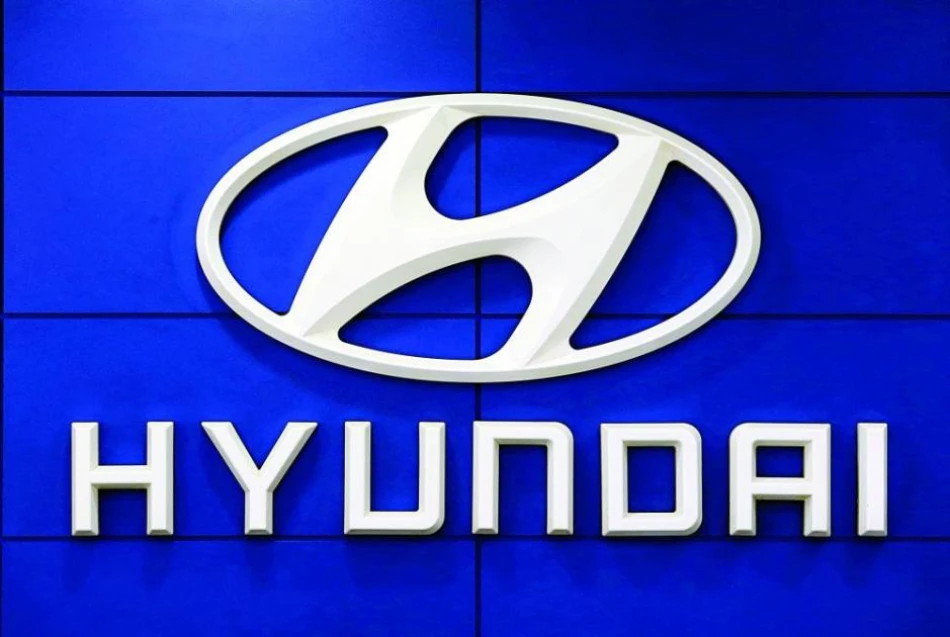
Hyundai to Invest $26 Billion in Expanding US Footprint, Boosting Manufacturing and R&D.
Hyundai's $26 Billion US Bet Signals Korea's Strategic Pivot Under Trump Tariff Pressure
Hyundai Motor has escalated its US investment commitment to $26 billion through 2028, marking a $5 billion increase from its previous pledge as South Korean conglomerates rush to secure favorable trade terms with the Trump administration. The expanded investment package, covering automotive production, steel manufacturing, and robotics, comes as Seoul navigates new tariff structures while deepening economic ties with Washington.
Investment Details: Beyond Cars Into Industrial Infrastructure
The four-year investment plan represents more than typical automotive expansion. Hyundai's package includes construction of a new steel plant in Louisiana, expanded vehicle production facilities, and a robotics manufacturing center capable of producing 30,000 units annually. The initiative promises to create 25,000 additional jobs, positioning Hyundai as a major industrial employer across multiple US states.
This diversification strategy reflects Hyundai's evolution from a pure automotive manufacturer into an integrated industrial conglomerate, competing directly with established US players in steel production and emerging robotics markets.
Diplomatic Timing: Investment as Trade Insurance
The announcement came hours after South Korean President Lee Jae-myung met with President Donald Trump in Washington, underscoring the strategic coordination between corporate investment and diplomatic relations. This timing suggests Hyundai's commitment serves dual purposes: genuine market expansion and political insurance against escalating trade tensions.
Korean Air's simultaneous announcement of a $36.2 billion Boeing aircraft purchase further demonstrates Seoul's coordinated approach to strengthening bilateral economic ties through major procurement deals.
Tariff Strategy: Paying for Market Access
South Korea successfully maintained its 15% tariff rate on exports to the US, avoiding Trump's threatened 25% levy through last month's trade agreement. This 10 percentage point difference translates to billions in preserved export revenue for Korea's trade-dependent economy, making Hyundai's $5 billion investment increase appear strategically cost-effective.
Seoul's broader commitment of $350 billion in US investments, including a $150 billion fund for American shipbuilding revival, represents a new model of trade diplomacy where investment pledges substitute for traditional tariff negotiations.
Market Implications: Industrial Reshoring Accelerates
Hyundai's expanded commitment signals accelerating industrial reshoring trends, particularly in sectors deemed strategically important by Washington. The inclusion of robotics manufacturing suggests Korean companies are positioning themselves within America's automation and AI industrial base, potentially accessing federal incentives while reducing supply chain vulnerabilities.
For investors, this pattern indicates foreign manufacturers increasingly view substantial US investment as essential for long-term market access, particularly in sectors with national security implications like automotive and advanced manufacturing.
Competitive Positioning Against Chinese Rivals
Hyundai's aggressive US expansion occurs as Chinese automotive and industrial companies face mounting restrictions on American market access. By establishing comprehensive US manufacturing capabilities, Hyundai positions itself to capture market share from Chinese competitors while demonstrating alignment with American industrial policy objectives.
The robotics component particularly targets a sector where Chinese companies like DJI and others face increasing scrutiny, offering Hyundai potential advantages in government and defense contracting opportunities.
Most Viewed News

 Omar Rahman
Omar Rahman






